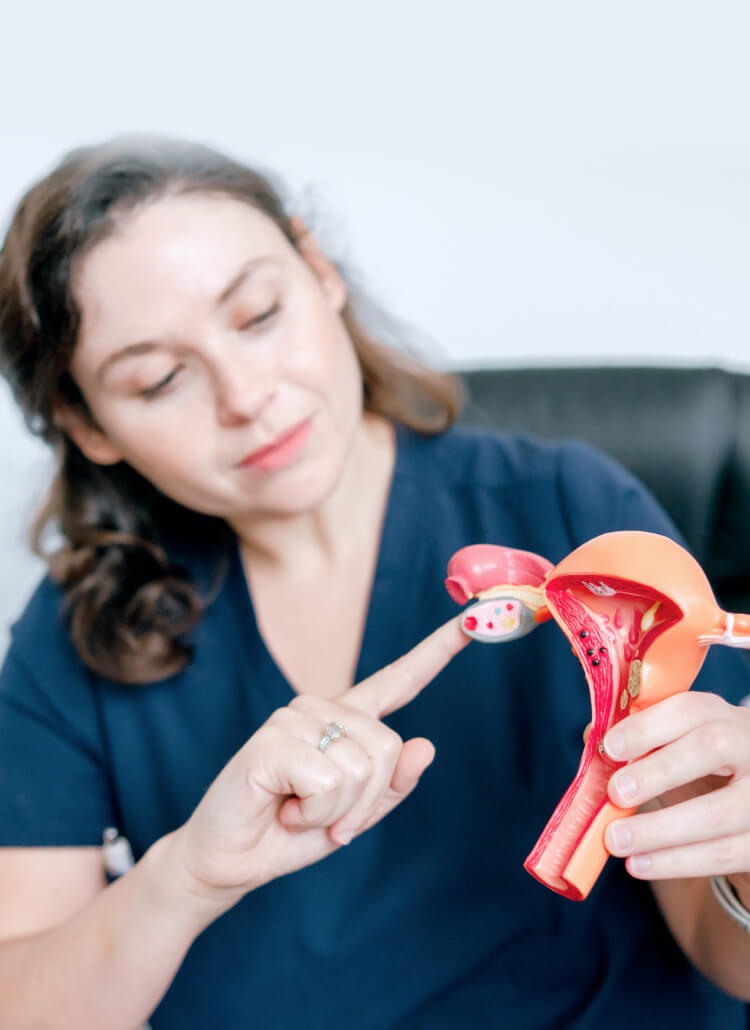Learn More about Frozen Embryo Transfer at Aspire HFI in Houston
If you have questions about frozen embryo transfer, contact Aspire Houston Fertility Institute. Our team is ready to meet you right where you are in your fertility journey.


Embryo cryopreservation permits selected embryos to be frozen for later use. When thawed at a later date, these embryos can be placed in the uterus with little or no medication in advance. This is known as a frozen embryo transfer (FET). The babies born after cryopreservation are just as healthy as babies conceived spontaneously.
The only fundamental difference between frozen embryo transfer and fresh embryo transfer is that frozen embryo transfers do not require ovarian stimulation. The technique and results are nearly identical. Embryos can be safely frozen indefinitely through a process known as vitrification (a flash freezing technique which produces no ice crystalization). There are no appreciable differences in the success rates of embryos that have been transferred fresh and those that have been previously frozen and then thawed before transfer. The benefits of FET are extending the potential success of an IVF cycle by achieving more than one pregnancy from a single cycle, and the option of fertility preservation.
Cryopreservation is a technique that involves freezing embryos, sperm, and oocytes (eggs). The technique utilized for eggs and embryos is known as vitrification. Vitrification is a process that allows rapid freezing in solutions that protect against the stresses secondary to freezing (ice crystal formation and osmotic effects from the solutions). The development of this technique has made frozen embryo and egg treatment cycles much more successful than in the past. Today, the pregnancy rates from frozen embryo cycles are comparable to those of fresh IVF cycles.
The process of a frozen embryo transfer involves synchronizing the uterine lining to match the developmental stage of the embryo or embryos to be transferred. The cycle begins by growing the uterine lining with estrogen to a recommended thickness and appearance on ultrasound. The addition of progesterone advances the lining to match the stage of embryos to be transferred. Once the uterus has been prepared, the embryos are transferred to the uterus in the same way as would occur in a fresh embry
Throughout your FET cycle, your doctor will use ultrasounds and bloodwork to monitor the growth of your uterine lining and check hormone levels. This helps ensure your body is ready for embryo transfer at the optimal time for implantation.
Frozen embryo transfers typically involve medications to prepare the uterine lining, including:
Estrogen, to build the uterine lining
Progesterone, to support implantation after the transfer
In some cases, additional medications may be recommended based on your medical history or past IVF outcomes. Your Aspire HFI physician will tailor your protocol to your individual needs.
Frozen embryo transfers are generally low-risk, but you may experience mild side effects such as cramping, bloating, or light spotting after transfer. Rare complications can include infection or an adverse reaction to medications. Multiple pregnancies are less common with FETs, but still possible. Your care team will guide you every step of the way to help minimize risks and ensure a safe, supportive experience.
Cryopreservation is a well-established technique and is commonly employed in fertility therapy. These include:
Embryos remaining from a fresh IVF cycle
Preservation of fertility
Persons undergoing medical or surgical therapies for other medical problems that could threaten his/her ability to have children in the future
Egg and sperm donation
Our staff will be happy to discuss the process in detail at your consultation.
We strive to provide our patients with numerous options at the Aspire Houston Fertility Institute, including cryopreservation and frozen embryo transfer. If you are considering in vitro fertilization, these options may be for you. Embryo cryopreservation allows you to preserve your embryos for later use without any impact on the chance of future successful conception. If you are career-minded, want to focus on personal interests, or are simply not at a point in your life to have a child, embryo cryopreservation allows you to delay the process.
If you have questions about frozen embryo transfer, contact Aspire Houston Fertility Institute. Our team is ready to meet you right where you are in your fertility journey.